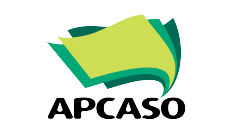The Asia-Pacific Community Rights and Gender Communications and Coordination (APCRG) Platform hosted by APCASO and Global Fund Advocates Network Asia-Pacific (GFAN AP) co-organised a webinar on “Understanding and engaging Asia-Pacific Communities and Civil Society in Global Fund COVID-19 Response Mechanism and 5% Operational Flexibilities”.
The webinar was organised to share more information on the 5% Operational Flexibilities (Grant Flexibilities) and Global Fund COVID-19 Response Mechanism (C19RM) which amounts to US$1 billion – the Global Fund’s response to the pandemic to help countries fight COVID-19, mitigate the impacts on lifesaving HIV, TB and malaria programmes, and prevent fragile health systems from being overwhelmed.
The Global Fund has also been providing updates, guidance, Q & As on its response through its websites and in communications with Country Coordinating Mechanisms (CCM). However, there has been great variance in which country stakeholders access, understand, and implement such guidance which could be attributed to a variety of reasons – including language of which materials are made available, access to internet connectivity during country-imposed restrictions to control the spread of COVID-19, systemic issues of engagement, involvement and/or participation of communities and civil society in country processes.
Thus the webinar was organised to:
- Provide an opportunity for the Global Fund to share information and perspectives on the use of grant flexibilities and COVID-19 Response Mechanism from a CRG lens by communities and civil society;
- Share country-level responses and experiences on the use of grant flexibilities and engagement in country level processes during COVID-19; and
- Discuss challenges and strategise on solutions on navigating Global Fund processes to use the flexibilities for the maximum benefit of key and vulnerable populations.
The webinar provided an overview of the Global Fund 5% operational and C19RM flexibilities to respond to COVID-19 pandemic along with an outline of community, rights and gender concerns in responding to COVID-19 with Global Fund grants reprogramming. Community representatives from Indonesia, Myanmar, Pakistan and Thailand provided insight, experiences, challenges and recommendations at the national level through work on the three disease components.
In addition, the the PLHIV representative on the Indonesia CCM, who is also the Chair of the HIV National Technical Working Group shared her experiences, challenges and recommendations operating virtually on the CCM as the country went into restrictions, during the funding request development process.
For more information on specific segments of the various speakers, please see below:
-
- Introduction to Global Fund COVID-19 Grant Flexibilities and COVID-19 Response Mechanism [Webinar Recording starts at 9:08] by Gyongyver Jakab, Senior Fund Portfolio Manager, Grant Management Division, Global Fund
- Country Experiences:
-
- Perspectives from an NGO PR [Webinar Recording starts at 39:33] by Daniel Marguari, Executive Director, Spiritia Foundation, Indonesia
- Perspectives from an NGO SR in response to needs of PLHIV [Webinar Recording starts at 48:23] by Asghar Satti, National Coordinator, Association of People living with HIV Pakistan (APLHIV), Pakistan
- Perspectives from a TB Implementer [Webinar Recording starts at 56:21] by Dr Nyan Win Phyo, Health Technical, Monitoring and Evaluation Coordinator, World Vision Foundation, Thailand
- Perspectives from an Malaria Implementer [Webinar Recording starts at 1:04:20] by Dr Aung Lu Maw, Programme Manager – Malaria, Save the Children, Myanmar
- Perspectives from Community/CS CCM Member [Webinar Recording starts at 1:11:30] by Meirinda Sebayang, Chair of Positive Indonesia Network, PLHIV Rep on CCM and Chair of HIV National Technical Working Group
- Community, Rights and Gender Considerations within Global Fund COVID-19 Grant Flexibilities and COVID-19 Response Mechanism [Webinar Recording starts at 1:20:40] by David Traynor, Senior Technical Coordinator, Community Rights and Gender Department, Global Fund
-
